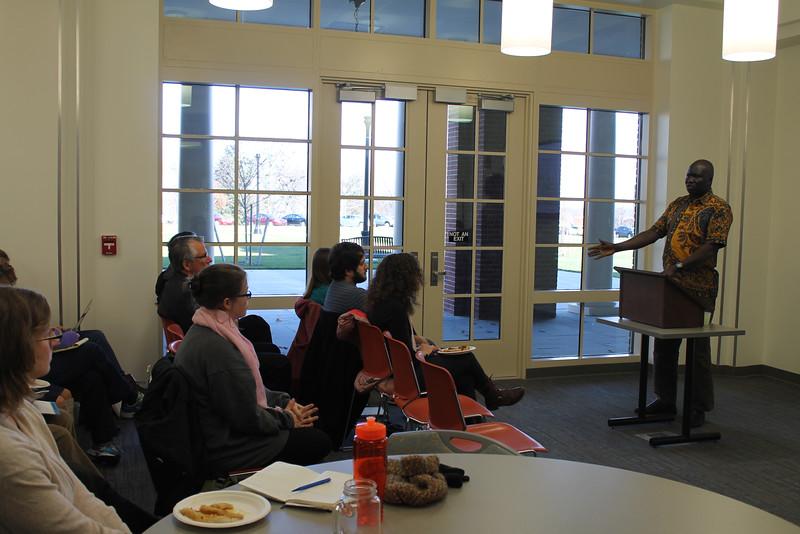Speakers explore Ebola’s political ramifications
November 20, 2014
Geoffrey Anguyo, MD, visiting from Uganda and Associate Professor of Biology Marie Pizzorno gathered with students on Nov. 18 in the Academic West Event Lounge to discuss the Ebola epidemic. This installment of the Pizza and Policy series was called “Confronting the Ebola Crisis: A Cultural and Scientific Approach.”
Anguyo is the Founder and Executive Director of the Kigezi Healthcare Foundation (KIHEFO). This nonprofit organization has devoted efforts to fighting diseases and viruses such as Ebola.
Pizzorno began the discussion by briefing the audience on the history, origins, and biological classifications of the Ebola virus. During the discussion, Anguyo relayed his experience living in Uganda and handling Ebola outbreaks in his country. He presented his political perspective of dealing with Ebola by explaining how the media, especially the radio, is the main way to inform people about what is happening. Originally, people in African communities believed that Ebola was a form of witchcraft. Once the virus was identified, the government contacted nonprofits similar to KIHEFO to broadcast the information to communities through radio stations to clear up the misconceptions.
The Ebola virus was discovered in 1976 during its first outbreak. So why have people waited until now to conquer this life-threatening virus?
“Nothing much has been done and now people are rushing,” Anguyo said.
Anguyo believes that there hasn’t been much research on Ebola because it is such a dangerous disease that people are unwilling to work with it in a lab. Pizzorno added that since the virus is constantly mutating, it is especially difficult to create a particular virus that will cure Ebola.
The speakers also discussed the difference between the treatment of Ebola in Africa compared to treatment in the United States. Anguyo believes that it is especially important for people near potential Ebola patients to stay in isolation for the recommended 21 days.
Anguyo expects that Ebola outbreaks will ultimately decline over time.





















